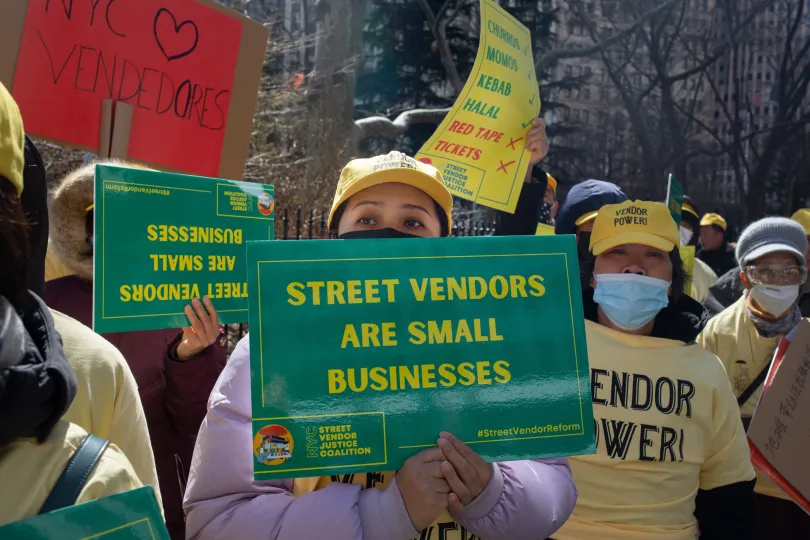Street Vendor Oversight Shift to Department of Sanitation Gets Trash Talk From Council
Mayor Eric Adams pulls out of a de Blasio-era overhaul that sought to give immigrant street sellers a fighting chance to make a legit living without police involvement.

 This article was originally published on by THE CITY
This article was originally published on by THE CITY
City Council members hailed getting the NYPD out of the picture as a “historic” solution to the decades-old problem of balancing the needs of brick-and-mortar small businesses with those of the unpermitted street vendors who hustle their wares outside.
But just two years after city officials created an Office of Vendor Enforcement and placed it at the city’s Department of Consumer and Worker Protection (DCWP), the agency’s commissioner, Vilda Vera Mayuga, suggested they had made a mistake.

Brooklyn Boro
View MoreNew York City’s most populous borough, Brooklyn, is home to nearly 2.6 million residents. If Brooklyn were an independent city it would be the fourth largest city in the United States. While Brooklyn has become the epitome of ‘cool and hip’ in recent years, for those that were born here, raised families here and improved communities over the years, Brooklyn has never been ‘uncool’.